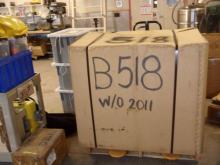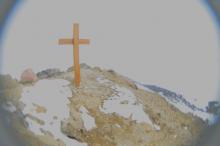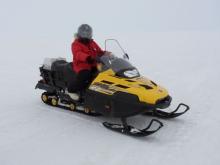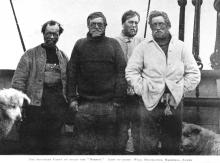Update
PolarConnect Events Now Archived!
If you want to see and hear Michelle sharing her experience being in Antarctica, you can access the archived event!
Visit the PolarConnect Archives!
Two Expeditions! Michelle Brown not only worked with researchers in McMurdo but she also worked with a team of researchers looking at space weather at the South Pole! You can learn more about her second expedition here.
What Are They Doing?
Humans have occupied the McMurdo Sound for over a hundred years. Early visitors had little impact on the region, but starting in the late 1950’s year-round, permanent buildings were established at McMurdo Station. Over the years thousands of humans have visited this area and have changed the landscape. Under its obligations to the Antarctic Treaty, the United States maintains a long-term monitoring program designed to track the environmental conditions in and around the station.
Each year, the research team conducts environmental monitoring and chemical, physical, and biological sampling in and around McMurdo Station. They collect samples from both marine and terrestrial habitats as measures of human impact. They take the samples back to the lab to look for contaminants.
The results of this research help document and minimize the impacts of future science and support operations in Antarctica. This information can be used to inform management decisions in and around McMurdo Station to help preserve the unique Antarctic environment.
Learn more about this project by visiting the official project website.
Where Are They?
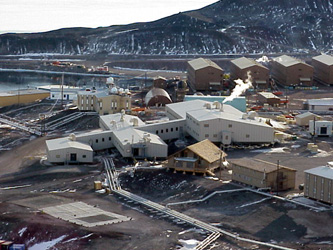
Latest Journals

Terry is a Research Associate who specializes in studying the effects of humans on marine and estuarine environments, especially the benthos (organisms on the sea floor). He been involved in marine and terrestrial environmental monitoring in Antarctica for 11 years. Terry's role in the team is a benthic ecologist and scientific diver.

Dr. Andrew Klein is a professor in the Department of Geography at Texas A&M University. He received a B.A. from Macalester College and a Ph.D. in Geological Sciences from Cornell University. He applies Geographical Information Systems (GIS) and remote sensing techniques to examine the impact of humans in and around McMurdo Station, Antarctica and other aspects of the Cryosphere. Andrew's role is team leader and GIS specialist.
Mahlon "Chuck" Kennicutt's research interests include environmental chemistry and organic geochemistry. His current research investigates the patterns of human disturbance at McMurdo Station. He has spent more than 575 days at sea and has deployed to Antarctica six times. Dr. Kennicutt serves as leader of the Sustainable Coastal Margins Program and is the United States delegate to, and the Vice President for, Scientific Affairs (USA) of the Scientific Committee of Antarctica Research (SCAR).

Stephen Sweet is a geochemist from the Geochemical and Environmental Research Group at Texas A&M University. His research interests have focused on environmental monitoring and assessment. He has participated in a number of scientific research programs in Antarctica, with multiple deployments to both the Antarctic Peninsula and Ross Island investigating the spatial and temporal patterns of human disturbance. Steve's role on the project is analytical geochemistry.

